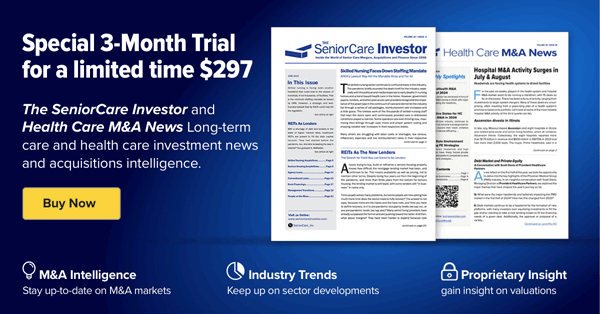Historically, nephrology has not seen a large amount of investment activity. In the past few years, there have only been a handful of transactions. According to data captured in the LevinPro HC database, in 2021 there were only five transactions. In 2022, there were eight and in 2023 there were nine transactions. The first six weeks of 2024 have not seen any nephrology acquisitions.
While deal volume is on the lower end, nephrology is an emerging market with lots of exciting opportunities for investors. In June 2023, Cain Brothers estimated the chronic kidney care industry to be worth $145 billion, so it’s a sizable industry with plenty of capital and opportunities for growth. The reasons to invest in this sector can be summarized as the chance to be on the forefront of an up-and-coming industry, the ability to consolidate the industry and the opportunity to expand value-based care.
The chance to be on the forefront of an emerging industry goes hand in hand with the fact that nephrology is, in many ways, still a fragmented market rife with consolidation opportunities.
We spoke with Ezra Simons, a Partner at Physician Growth Partners, who addressed the fragmentation of the market. He views the market as more fragmented than other specialties which private equity has pursued such as urology or orthopedics as there are less employed by hospitals and health systems while the private equity entrance into nephrology is rather new. This leaves many providers practicing in smaller, independent, group practices.
There are several private equity groups that have staked a claim on nephrology, but no group has a significant control of the market. Some of the private equity groups that are more active in the nephrology space are Rubicon Founders LLC through Evergreen Nephrology and Audax Private Equity through Panoramic Health.
Panoramic Health has partnered with 26 practices and has more than 750 physicians on staff. Evergreen Nephrology is partnered with 19 practices. In comparison, some of the larger eye care groups, such as Retina Consultants of America which is backed by Webster Equity Partners, has 202 locations across 19 states. This comparison highlights the fact that even the larger nephrology groups don’t actually have a large control of the industry, which means there’s more room for investors to navigate and acquire.
The fact that nephrology has seen an uptick in deal activity (and that is expected to continue into 2024, according to industry experts) should be reason enough for investors to dip their toe into the market. The benefit of getting into an emerging industry is that it allows investors to carve out a bigger stake in the market as many practices have not been bought by other groups. While there are not as many practicing nephrologists in the United States as other specialties (there are an estimated 10,000 to nearly 13,000), it’s a highly concentrated specialty that draws in niche abilities for expansion.
Nephrology is unique because there are not too many avenues for ancillary services. This deters hospitals as the expansion opportunities can be limited, but in turn, private equity has been able to leverage that into focusing on expanding dialysis services. Even though ancillary services opportunities are mostly limited to dialysis, Simons noted that nephrologists have been able to take advantage of the shift to at-home dialysis. This has allowed for more opportunities for nephrology practices to provide services to a larger patient base.
With less competition from hospitals, private equity groups can allocate greater resources toward enhancing nephrology care. According to data from the LevinPro HC database, out of 24 nephrology transactions, 17 have been driven by private equity.
This trend aligns with the rise of value-based care, a significant factor driving increased activity in nephrology. The importance of value-based care for kidney disease is further underscored by the introduction of new payment models through the Advancing American Kidney Health initiative. These models, such as the mandatory ESRD Treatment Choices Model in 2021 and the voluntary Kidney Care Choices Model in 2022, emphasize the need for value-driven approaches in kidney care.
Simons also had this to say about how value-based care plays into private equity’s appetite to develop within nephrology, “Globally we see private equity groups trying to advance the ball around value based care and risk based care models – there is no question that healthcare is heading away from quantity of service and into quality and value. Private equity groups are trying to figure out how to play that. Kidney failure, nephrology’s core disease state, impacts more Americans than just about any other medical specialty. There are value-based opportunities already in place to support focusing on managing this patient demographic and an opportunity to be on the leading edge of value based care that actually impacts tons of Americans on a daily basis.”
As more capital is directed towards advancing value-based care, investors like private equity groups are uniquely positioned to drive progress in kidney care. Value-based care is such a large part of nephrology’s appeal because it manages risk and drives growth.
Investors should be paying attention to nephrology because, as an emerging and large market, it is rife with investment opportunities. This is the latest installment in our new series, “Why Invest In…” For other installments, click here.


